#Kaneko Fumiko
Explore tagged Tumblr posts
Text
"I cannot destroy my current self so that my future self can survive."
16 notes
·
View notes
Text

"And for those representatives of power who trample upon the lives of the naturally equal humans on the earth, those lumps of meat equal to lumps of dirt called the Emperor and Crown Prince, the poor people they’ve deceived give them an exaggerated holiness and provide them superior, inviolate positions while they’re being exploited. And it’s there that I wanted to show the people clearly that those being impressed upon them then as sacred inviolate power, the Emperor and Crown Prince, are in truth empty lumps of meat among lumps of meat, nothing but puppets, to show those being exploited that they’re nothing more than marionettes and foolish dummies used by the privileged few to enrich themselves by deceiving the people who serve as their source of wealth, and through this to show that the mountain of long-held traditions that bestow the Emperor with divinity are purely empty superstitions."
- Kaneko Fumiko
Because I Wanted To
Translated by the homie Max Res of Viscera Providence (now Viscera Philly)
#anarchism#insurrectionary anarchism#1312#egoism#post left#nihilism#Kaneko Fumiko#Japanese Anarchism#assassination
33 notes
·
View notes
Text

Kaneko Fumiko (金子 文子, Kaneko Fumiko, January 25, 1903 – July 23, 1926) or rarely Pak Fumiko and Pak Munja (Korean: 박문자; Hanja: 朴文子), was a Japanese anarchist and nihilist. She was convicted of plotting to assassinate members of the Japanese Imperial family. Via Wikipedia
0 notes
Text
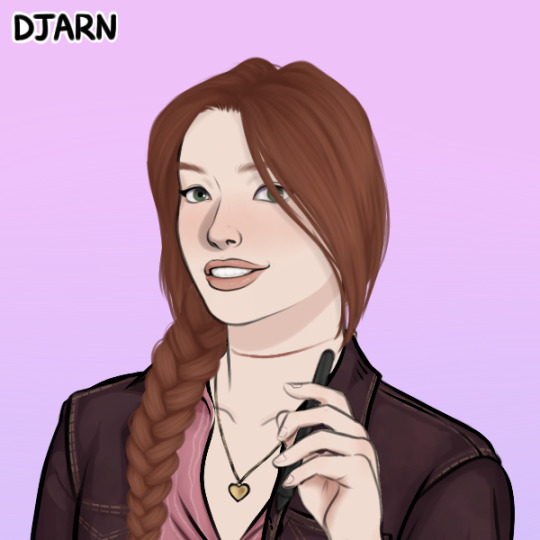
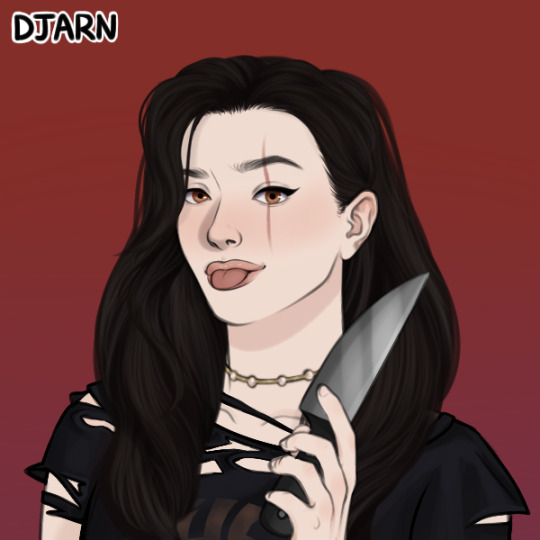
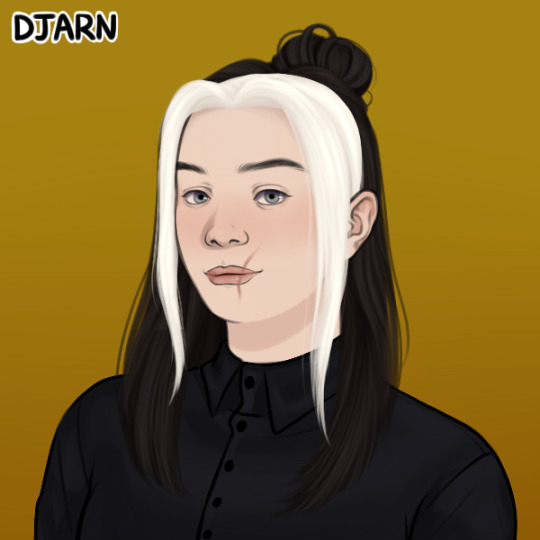
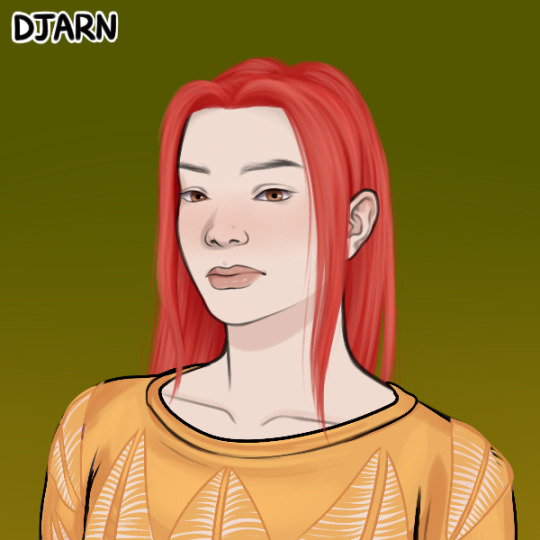


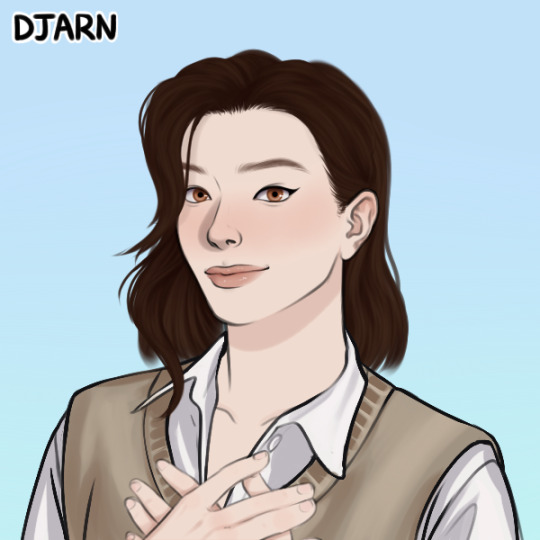

Skylar "Phoenix" Jackson (r6s) | Liz Walker (CoD) Himiko Nakamoto (Demon Slayer) | Fumiko Nakamoto (Demon Slayer) Naho Kaneko (mha) | Aoi (mha) Kai'Sa Blake (aot) | Redacted (Spy x Family)
I was tagged by the wonderful @leviiackrman @chuckhansen @chazz-anova @detectivelokis @corvosattano and @playstationmademe to use this cute picrew for some of the kiddos. Thank you! 💜
Tagging @nightbloodbix @voidika @nightwingshero @shegetsburned @jinfromyarikawa @river-ward and whoever else wants a go at it!!
#yes my spy x family oc still doesn't have a name yet😭#Aoi just doesn't have a last name yet lmao#oc skylar jackson#oc liz walker#oc himiko nakamoto#oc fumiko nakamoto#oc naho kaneko#oc kai'sa blake#fumiko is also supposed to be a demon#this picrew didn't have any blood :(
22 notes
·
View notes
Text
can one of my mutuals who make gifs watch and make gif sets of anarchists from colony please it is so goodddd...they really made a tragic romance about real anarchists who were attempted regicide....
#i finally have a copy of kaneko fumikos writings while in prison but i still need to read park yeols poetry!!!!!#.r
1 note
·
View note
Text
youtube
One Summer Afternoon by PAO
Album: You Year: 1980 Label: Victor (Invitation sublabel) Lyrics: Fumiko Miyazaki / 宮崎文子, Sabine Kaneko / サビーネ金子 & Yoshikazu Miura / 三浦義和 Music: Fumiko Miyazaki / 宮崎文子
#city pop#pao#1980#victor inc#fumiko miyazaki#sabine kaneko#yoshikazu miura#80s city pop#subcategory: aor/latin#admin fave#hidden gem#my channel#Youtube
0 notes
Text

"Kaneko Fumiko (1903–1926) was a Japanese anarchist living at the early part of the 20th century. Born out of wedlock into grinding poverty, she lived her life as an outsider within Japanese society including a stint with unloving and cruel relatives in then-occupied Korea, her experiences inspiring both her rebellion against authority and feelings of solidarity with others on the receiving end of society’s boot. Together with her friend, partner and, before her death, husband Pak Yol, she started underground anarchist societies, published articles against the Japanese state and society, and, perhaps, planned to kill the Emperor Taisho and then-Crown Prince Hirohito at Hirohito’s wedding.
She and Pak were some of of many who’d be swept up in the mass arrests and killings of enemies of the state both real and perceived after the Great Kanto Earthquake of 1923. Placed into “protective custody,” she and Pak were tried and sentenced to death for high treason on charges related to a plot to kill the Emperor and Crown Prince. While these sentences was later commuted to life in prison by the Emperor, an honor she promptly rejected by tearing the decree up in front of her jailers, she was found hanging in her cell in 1926 and is supposed to have committed suicide." - Because I Wanted To
#anarchism#anticapitalism#queer anarchism#anticiv#leftist memes#anarcho nihilism#egoism#nihilism#anarchist memes#anticapitalist#post left
123 notes
·
View notes
Text
I've been wanting to write a longer thread about this for awhile.
If you're new to the concept of Anarchy, even if you know the basics, you most likely have never heard of Anarcho-Nihilism. If you know basic leftist Ideologies, or just scrolled Political Compass pages, you know of Anarcho Communism, and most people understand there's other branches for marginalized groups like Queer Anarchy, Anarcha Feminism, etc.
This thread will go over Anarcho-Nihilism and the basics of what it is. It will talk to the reader as if you already understand the basic concepts of Anarchy, so if you don't, I recommend reading "Life Without Law" before coming back here.
Anarcho-Nihilism: A Beginners Text To How Fucked We Are
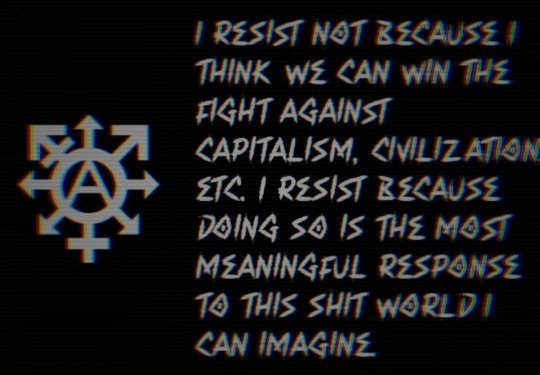
Anarcho-Nihilism is a post-left ideology, meaning that most of the substance of its standpoint are direct criticisms of not just Anarchy, but the leftist movement as a whole, which means Anarcho-Nihilists often reject the label of "Leftist" all-together.
Anarcho-Nihilism is also directly connected to Individualism and Egoism, with more modern Anarcho-Nihilists aligning into Eco-Extremism as well.
Post-Left criticisms, which includes Anarcho-Nihilist criticisms, of the Left include but are not limited to the Lefts view on Organization, Revolution, Unity of Ideologies, Fetishism of Work and Industry, and need of Popularity Politics. We will get into these shortly.
Brief History and Moments of Inspiration
Anarcho-Nihilism takes inspiration from a wide range of people and movements in history, but the earliest "creation" of Anarcho-Nihilism starts with the "Nihilist Movement", which was a Russian movement in the 1860s which focused on attacking traditional ideas of society such as morality, authority, traditionalism, and religion. This came from the growing divide between older radicals and the younger generation who were disillusioned towards older forms of leftist organization and ideas.
Russian anarchist Peter Kropotkin discussed the movement itself, stating "defined nihilism as the symbol of struggle against all forms tyranny, hypocrisy, and artificiality and for individual freedom".
Early forms of Russian Nihilist theory incorporated Egoist theory into its ideas, and saw that all morality, aesthetics, and social institutions were meaningless, but they did not see all ethics, knowledge, and human life as meaningless.
Russian Nihilism was characterized throughout Europe for being linked to Political Terrorism due to multiple assassinations and assassination attempts against politic officials, including the assassination of Tsar Alexander II in 1881. Historian M. A. Gillespie concludes that Russian Nihilism was at the core of revolutionary thought in Russia throughout the lead up to the Russian Revolution.
Anarcho-Nihilism as a movement grew with voices like Kaneko Fumiko, a self identified Anarchist and Nihilist who was convicted of plotting to assassinate members of the Japanese Imperial Family.
Kaneko had many experiences from working with the notably Christian Salvation Army, to studying socialist movements and revolutionaries, anarchist theorists, and Nihilist movements. She only maintained a brief relationship with the Salvation Army, not compelled by their beliefs as well as being abandoned by a Christian friend after he felt his growing feelings towards her were threatening his beliefs. From the Salvation Army she jumped into the socialist movement, but was let down as she found Socialists would often behave in ways they directly advocated against.
Kaneko says her radical shift from Socialism to Anarchism and Nihilism came in 1922 when she met Hatsuyo Niiyama, who she considers her closet friend. Hatsuyo introduced her to thinkers like Max Stirner, Mikail Artsybashev, and Friedrich Nietzche. Kaneko also met Pak Yol, a Korean activist and anarchist who shared her belief systems.
Kaneko and Pak themselves helped continue to define a new set of Anarchism that aimed away from the common ideas of Syndicalism and Union Organizing, Kaneko herself writing about her views in a document made to the court in 1925 after she and Pak were convicted of attempted assassination, stating "formerly I said 'I negate life'... [but] my negation of all life was completely meaningless... The stronger the affirmation of life, the stronger the creation of life- negation together with rebellion. Therefore, I affirm life...Living is not synonymous with merely having movement. It is moving in accordance with one's will… one could say that with deeds, one begins to really live. Accordingly, when one moves by means of one's own will and this leads to the destruction of one's body, this is not a negation of life. It is an affirmation." Kaneko also claimed she wanted to "throw a bomb at the Emperor to show he, like everyone, will someday die" to deny his authority as all powerful.
One of Kaneko's main criticism of the Socialist Movement was the treatment of women, including her, in the movement itself, and this further pushed her into Anarchism and Nihilism as she believed that even these Socialist men would abuse their authority should it be granted.
Blessed is the Flame: The Anarcho-Nihilist Manifesto
"The anarcho-nihilist position is essentially that we are fucked. That the current manifestation of human society (civilization, leviathan, industrial society, global capitalism, whatever) is beyond salvation, and so our response to it should be one of unmitigated hostility. There are no demands to be made, no utopic visions to be upheld, no political programs to be followed — the path of resistance is one of pure negation." Serafinski "Blessed is the Flame"(2015)
Blessed is the Flame is considered one of if not the theory for Anarcho-Nihilism of the modern age, with its criticisms of organization and resistance during times of great tragedy.
Blessed is the Flame is a piece of text about not just Anarcho-Nihilism, but Negation through the lens of the Holocaust and Concentration Camp Resistance. The theory takes the time to explain to the reader just how bleak the reality of life was for concentration camp prisoners, and how the Nazis did everything in their power to snuff out rebellion at its core, and how people rebelled anyway, even when there was no hope to rebellion. Because of this perspective, and usage of a great tragedy, many have criticized Blessed is the Flame for romanticizing the struggles of camp prisoners, even if the author meant not to.
Blessed is the Flame, nonetheless, does the important task of putting what Anarcho-Nihilism is into digestible theory that can be spread and built upon.
Blessed is the Flame asserts that, as the quote says above, Anarcho-Nihilism is the belief that the world as we know it is fucked, to put it simply. That the current systems of domination such as white supremacy, patriarchy, colonialism, etc. have their roots too deep to be organized away, that we have reached past the point of no return for ecological destruction (Global Warming), and that we should meet this hopelessness with destruction.
Blessed is the Flame, and Anarcho-Nihilism, directly criticizes the Marxist idea of Progress. Progress, as in, the idea that Humanity overtime progresses in its worldviews and we will naturally get to a point where Humanity achieves some better world without hate or exploitation, away from the systems of domination. It is argued that history shows we do not progress up, even if we have moments things seem better, we keep crashing harder and harder as the systems of domination grow stronger and root themselves deeper into our lives and psyche. "The conception of history that came out of the Marxist tradition (dialectical materialism) dictated that the transformation of society would pass through capitalism... to transform into socialism and eventually communism. This meant that progressivism was embedded within this (the dominant) branch of socialism."
Blessed is the Flame also argues that, "This stands in direct contrast to other anarchist tendencies that place at least some emphasis on “positive programs” — aspirations to construct something ideal in the present world or to craft plans in preparation for the downfall of the current system. Anarcho-nihilism understands the positive program as “one that confuses desire with reality and extends that confusion into the future” by either making promises about what a revolutionary future might hold, or attempting to bring those conditions about from within the existing order."
To put it more plainly, Anarcho-Nihilists argue that whatever we try to build under these current systems will be co-opted, capitalized, and/or destroyed as they will be at odds with these systems. That our socialist programs, minority solidarity movements, etc. will always find their ways back to being assimilated into the death machine that is industrial civilization.
Imprisoned members of the CCF (Greek Conspiracy Cells of Fire) write, "We anarcho-nihilists ...don’t talk about ‘transformation of social relations’ towards a more liberated view, we promulgate their total destruction and absolute annihilation. Only through total destruction of the current world of power... will it be possible to build something new. The deeper we destroy, the more freely will we be able to build".
The argument is that if we meet the state with negation, with destruction, then our positive movements cannot be co-opted and destroyed. The further we dismantle the states control, the more freely we can take the time to build ways we can help each other.
In this same frame of argument, Anarcho-Nihilists, including the aforementioned imprisoned members of the CCF, argue that creating strict organization is "construction of a dam that tries to control the impetus of the abundant stream of Anarchy". Anarchy is fluid and will take many paths, and attempting to redirect Anarchy onto one path is undesirable.
Coming back to Post-Leftism, Anarcho-Nihilist (as well as Post-Leftism) critiques the lefts style of organization, the revolution, and a need for popularity politics. Blessed is the Flame brings up how the Nazis used this concept of "future time" to break the spirits of camp prisoners, through slogans such as "Freedom Through Work", being told they were being taken to Sweden only to end up in Auschwitz, taken to be Showered only to be stripped and put into prison clothes, told Work was Freedom only to be worked to death. The Nazis, cruelly, suspended the Prisoners in this Limbo of time between certain death and uncertain future, breaking their resolve to fight back as fighting back could cost them that possibility of freedom. The key to insurgency wasn't to open the curtain to reveal the lie of future time, as this lead to despondency and the further breaking of the soul. Blessed is the Flame argues that the key might lie between what is dubbed "Lager-Time" (future time) and Suicidal Despondency, something called "Suspension". In Suspension, there is no focus on the past nor future, but rather, the need to survive in the current moment. Breaking free of that suspension in the present, throwing away the chains of time, lead to violent uprisings and revolt even in the most hopeless of situations.
The paragraph above ties into Anarcho-Nihilisms critiques of the lefts view of the aforementioned 3, organization, revolution, and popularity politics. Anarcho-Nihilism argues that the left views organization as a non-violent house of cards that must be meticulously built up fully, no matter how many times it gets knocked down, and that our Revolution may only come after this house of cards is built. The left with also argue that this house of cards can only be built through their ideas becoming popularized, such as "workers of the world uniting", and once that happens then Revolution is an inevitable force. Leftists argue that revolution WILL happen, this precarious house of cards WILL be built, and there IS a better world and denying this is anti-revolutionary.
Anarcho-Nihilists reject this, viewing this as a form of Lager-Time, unable to act in the present because of uncertainty, or rather a false certainty, of the future. Given what was previously said about Anarcho-Nihilists view of Progress, they argue that radicals shouldn't wait for some Rapture like "revolution", that while we wait for workers to unite, fascism builds and global warming worsens and capitalism continues to evolve like an ever growing leviathan. The fact is, Anarcho-Nihilism claims, there isn't a reality where the workers of the world all wake up and unite against the common enemy. Even in socialist movements there lays bigotry against marginalized groups that chokes the life from these movements and further scatters the solidarity amongst each other.
Anarcho-Nihilists, as well as Blessed is the Flame, directly oppose the lefts modern form of organization, which is built on democratic circles and layers of policy and aesthetics. Needing to go through 3 different rings of people to do action just delays, and defangs, the action. Anarcho-Nihilism advocates for decentralized forms of organization, where the "org" is disconnected from each other except by name and motivation. If you want to do action, you just fucking do it, no bureaucracy bullshit. Examples of these modes of Organization is ELF (Earth Liberation Front), ALF (Animal Liberation Front), and the CCF (Conspiracy Cells of Fire). Each of these fronts is without leaders, without form, moving like water to serve the cause when needed. To be a part of groups like these, such as ELF and ALF, you need only to agree with the views, and that's it. You can create an ELF or ALF group right now with friends and go do shit.
At its core, the Anarcho-Nihilist critique is that of an Individualist one, of the collective vs. the individual. This critique argues that often, the will of the collective can overrule the freedom of the individual, stunting action and even self that the collective was supposed to foster (This specifically being a similar argument that Max Stirner, the "Father of Egoism", has discussed).
"...think back to 2012 when the CEO of an Italian nuclear power company was shot in the kneecap by two anarcho-nihilists who claimed the attack under the banner of the FAI. After the attack (which was partly inspired by the 2011 nuclear disaster in Fukushima), the pair released a communique pointing to the various atrocities committed in the name of nuclear power and calling for an all-out attack on the nuclear industry. In response to that action, the Anarchist Federation in Italy (a formal Marxist organization with no relationship to the FAI) issued a response that condemned such a renegade action: “... we strongly criticize individualist and vanguardist tactics that do not come out of a broad-based class-struggle movement. We condemn actions that put workers in danger without their knowledge...” According to this perspective, the individual acting without the validation of a formal collective, and without respect for working class solidarity, has no place in an anarchist movement. In counter-response to this (and other condemnations), insurrectionary and nihilist keyboards ignited with scathing indictments of this breed of “civil anarchism” that tries to restrain individual attacks behind the “working class” banner." Blessed is the Flame.
So, if we are fucked, and Leftist modes of organization can strangle action, what is there to do? Why fight back?
Hope Is Not A Plan: Jouissance and Insurgency
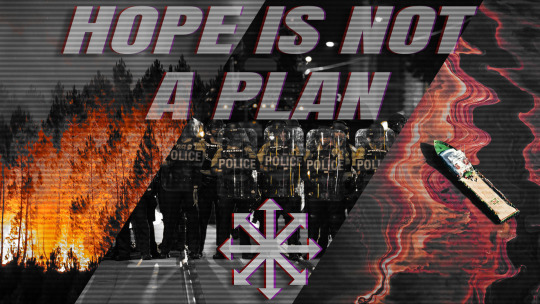
Jouissance is a French word for "enjoyment" but can have connotations related to "uncivilized desire".
"Jouissance is an ecstatic energy, felt but never captured, that pushes us away from any form of domination, representation, or restraint, and compels us towards fierce wildness and unmitigated recalcitrance. It is “the process that momentarily sets us free from our fear of death” and which manifests as a “blissful enjoyment of the present,” or a “joy which we cannot name.”[110] Jouissance is the richness of life evoked by resistance, the spirit that allowed Mária Jakobovics to continue her acts of sabotage despite the sting of the club or the threat of the noose, and the spirit that perhaps allows many of us to lead lives of resistance in absolutely overwhelming circumstances. It is the visceral experience of negation as ecstatic liberation." Blessed is the Flame
Jouissance, for Nihilists, is the core of Anarchism. The need, no, the Joy of resistance to keep us alive and going. Not fighting because we might win, not fighting because we might lose, but fighting because we can and we fucking will. "Inmates who physically confronted their oppressors were not engaged in a “rational political struggle for a better future,” but rather understood the futility of their situations and chose to fight back regardless."
Said from the CCF, "what really counts is the strength we feel every time we don’t bow our heads, every time we destroy the false idols of civilization, every time our eyes meet those of our comrades along illegal paths, every time that our hands set fire to the symbols of Power. In those moments we don’t ask ourselves: ‘Will we win? Will we lose?’ In those moments we just fight." Anarcho-Nihilists favor Insurgency and Insurrection, not Revolution. Anarcho-Nihilists are for short bursts of violent energy, of humans taking up arms not for some convoluted idea of politics, but for the goal of rebelling. Like the burning of the Minneapolis Precinct in 2020, letting the rage and rebellion of those of us still living shining through and proving we still have fight in us, we won't die quietly in the night. These short bursts of violent energy encouraging humans to negate the will of the systems of domination, and encouraging more radical action and eventual destruction of these systems entirely, because what else is there? We live under these impossible systems, we fight and possibly die or we don't fight and we DO die.
"The active nihilist sees in the unknown future and despair at our current situation, a call to arms. Meaning is found in approaching the void rather than in the false knowledge of what is on the other side of it." —Attentat
Embracing the Void: How We Can Use This
On a real level, I don't expect you to read this and instantly agree we are fucked. Embracing this idea that our world is gone is a difficult one, and a depressing one.
Instead we can focus on what Anarcho-Nihilism brings to the table regarding its critiques and ideas.
We can begin to embrace decentralized modes of organizing, instead of searching for some Vanguard party to get swallowed up into. When you have an idea, do it. Get with friends or peers and go out into the world.
We can embrace negating the system when at all possible, illegalism as a tactic.
We can embrace the uncertainty of the future and, instead of waiting for things to get better, we can take action NOW, in the present, outside of suspension to do what we can because we can. Our nihilism does not have to paralyze us, it can instead energize us.
Anarcho-Nihilism Reading List
Blessed is the Flame
Blessed is the Flame (Audiobook)
Desert
Desert (Audiobook)
The Insurrectional Project
The Economy is Suffering, Let it Die!
Uncivilized
Say You want an Insurrection
Anarchy: Civil or Subversive?
Armed Joy
Notes on Post-Left Anarchism
Accomplices not Allies: Abolishing the Ally Industrial Complex
Rethinking the Apocalypse: An Indigenous Anti-Futurist Manifesto
Voting is Not Harm Reduction - An Indigenous Perspective
#leftist#leftism#anarchy#anarchism#anarchist#socialism#socialist#communist#communism#theory#long thread#long post#nihilism#history#anarcho nihilism#anarchocommunism#anarcho syndicalism#anarchofeminism#anarchopunk#punk
35 notes
·
View notes
Text
“My presence will shortly be effaced from this earth. I believe, however, that every phenomenon continues as such to exist in eternal actuality even though it be physically obliterated. I now lay down the pen ... perfectly calm and at peace.”
-Fumiko Kaneko
24 notes
·
View notes
Text
just beat pokemon seaglass emerald. good fucking mod, i'm gonna post about my team here!
my starter was a mudkip that i named kaneko!, after kaneko fumiko, which in retrospect might not've been the most fitting name but oh well! it's a good name! kaneko!'s a sweetie, hugged me all the damn time, steadfast friend throughout the entire game!! love her as much as i usually love my starter, so that's an improvement over crystal
then i had beller, my swellow. she was one of the first guys i caught, and aside from kaneko! was one of the only consistent factors throughout the entire game. she was reliable, solid as they come, if a bit boring. she's like an AK in that regard, so functional that it can be a bit uninteresting. honestly i just chose her because i was forcing myself to not use skarmory yet again. god i love skarmory
then there's Gwenna, my mawile. not the strongest, but definitely came in clutch quite a few times. was particularly useless early on in her career, but she shaped up quite nicely! also i just love mawile, was nice to finally use one of my favorite gamers in a mainline game
then there was Hana!!!, my meganium! i was so surprised that i managed to find her just randomly, but i suppose that's the nature of the "you can get Literally Everyone in the wild" kindsa hacks. i raised her from a little chikorita and, as always, she was very reliable because meganium is a very good pokemon and i'll fight whoever says otherwise. also, i named her Hana!!! because hana is japanese for flower and she's a big ole flower creature so it fits
then there was jemna, my medicham. i found her surprisingly early, which was rather nice because it's just nice to have a decent psychic gamer around, and the fighting doesnt hurt either. she was what i used instead of gardevoir, since i've pretty much always gotten a ralts whenever i've played pokemon emerald. pretty reliable, all things considered; didn't have the best move pool but we made it work. mostly just wish she learned a better fighting move, but oh well.
and finally, there was daniel, my raichu. i caught him when he was just a little boy, i believe he was a pichu at first but he evolved into pikachu pretty damn quickly. i love daniel, he's such a good boy & he deserves all of the pop i can afford. and by the time he fully evolved he did in fact become a pretty damn strong boy. incidentally i pretty much always read his name in a doting jewish grandmother voice, and i think that's pretty indicative of how i think/feel about him. he's such a good boy..... The Best.....
2 notes
·
View notes
Text
Because I Wanted To KANEKO FUMIKO on nihilism and why she wanted to kill the Emperor of Japan
"I had imagined that socialists were people that rose above the meaningless customs and morality of the society. I imagined them to be courageous fighters with no interest in so-called fame and honor and social reputation. I thought they were warriors fighting to destroy the perverted society of today and striving to create an ideal society. However, even though they denounce the irrational and hypocritical aspects of the society, and pretend that they are indifferent to social criticisms and to fame and reputation, they in fact are governed by and are concerned about the standards of the mundane society. They seek to adorn themselves with conventional ornaments, and take upon themselves conventional values. Just as generals take pride in the medals on their chests, socialists covet records of arrests in order to earn their bread. They take pride in this. When I realized this fact I gave up on them.
I also came to be appalled at the somnolence of the peasants, who are mired in pain but feel no pain, and the ignorance of the workers, who work diligently while they are being devoured to their bones. If the chains that bind them are removed, they are likely to go to the wielders of political and economic power with their chains and beg them to chain them up again. Perhaps they will be happier if they are allowed just to sleep in ignorance. So I got disgusted at all the currents of thought and from the spring of 1922 tightly embraced the nihilistic beliefs I hold today."
4 notes
·
View notes
Text
youtube
231023 [22 years and 2 months] Bena Amoris Day Wedding Ring Making_Park Yeol Lee Jaehwan & Kaneko Fumiko Choi Soojin | @ 아떼오드
2 notes
·
View notes
Text





Kaneko Fumiko in Park Yeol (박열) (2017)
#anarchist from colony#park yeol#film#anarcho nihilism#ok movie but mostly in love with her portrayal
1 note
·
View note
Text
First post!
Hello! My name is Kaneko Fumiko. I hope to make this blog about my travels in secondlife, and my work as a Miko at Little Yoshiwara Sim!
I enjoy finding sims that are off the beaten path, and also traveling the roads, pods, and railroads on the mainland.
More info coming soon!

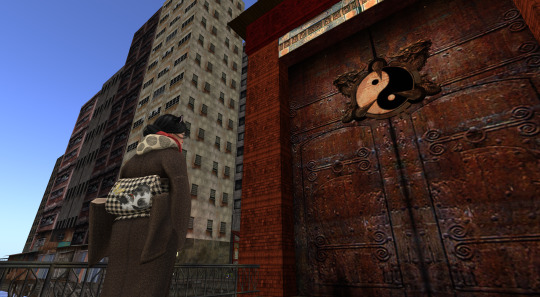
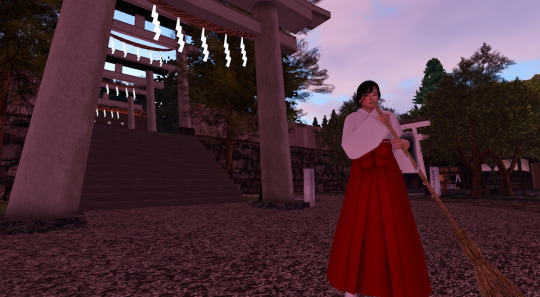
1 note
·
View note
Text


Hane, Mikiso. 1993. Reflections on the Way to the Gallows: Rebel Women in Prewar Japan. 1st paperback ed. Berkeley: University of California Press.
Reflections on the Way to the Gallows is a compilation of translated and edited primary sources from communist, socialist, and anarchist women of Meiji (1868-1911) and Taishō (1912-1926) era Japan. It has been on my tbr for a long time, and I was lucky enough to be able to sneak it into one of my history classes last winter.
After an introduction by the author, the featured women are Fukuda Hideko, Kanno Suga, Kaneko Fumiko, various members of the Sekirankai (Red Wave Society), Tanno Setsu, and Yamashiro Tomoe. It seemlessly builds up on other works by Hane that feature marginalized groups in modern(izing) Japanese society, albeit with a narrower focus determined by gender.
The accessability and readability of the documents fluctuate, depending on the woman's respective education and the circumstances in which the sources were obtained / written. Nevertheless, the importance of such sources is all too clear: Giving a voice to the marginalized, who (especially in the case of Kanno Suga!!) are too often characterised by the men around them.
(And while (pessimistic) nihilism could never fully caption me, I was screaming giggling kicking my feet at Pak Yeol and Kaneko Fumiko.)
0 notes
Note
Sorry for intruding, I just think I can help with some questions, which Horikoshi might not have addressed because he might have thought Japanese readers would know the answer already.
Where exactly is Spinner? We know he wrote and published a book, but is he in jail and if so, how did they allow him to publish this book?
Destro also wrote a book of his memories in jail so in canon is possible to do so. I didn't hear of Japanese convicts recently writing books while in jail but in the past someone did.
Kaneko Fumiko (1903-1926) wrote this memoir while in prison after being convicted of plotting to assassinate the Japanese emperor then she hanged herself in prison. As she wrote her memoir as an indictment of the society that oppressed her, the family that abused and neglected her, and the imperial system that drove her to her death it can be she had been an inpiration for how in the story Destro also wrote his memories in prison and after he killed himself, his book getting published and then reprinted. Hopefully Spinner didn't have to kill himself or die to get his book published... though it was said who got multiple Quirks would die of old age sooner... not become a Nomu. So Horikoshi might remember about this and have him die. Honestly I don't like how he wasn't shown at all.
Anyway even if the MLA was mostly arrested and Trumpet's party dissolved chap 297 said some factions survived so they could have helped printing the book.
On the other side since in real life real life killer Sakakibara could print his own book and it got sold quite a bit before someone decided to ban it... well, Spinner's book can't be as bad as Sakakibara's tale of how he murdered elementary school kids.
Is Compress in jail forever? Is he still in a cell with Geten? He read Spinner's book, but how did he get hold of it? Was the prison kind enough to give him a copy?
By Japanese law Compress should be sentenced to capital punishment along with Spinner as they committed multiple murders. When said capital punishment will be executed is something only God would know as Japan isn't particularly fast on this. There are cases of people dying of old age before being executed.
Alternatively they can be sentenced to life imprisonement... but since they were high in the ranks of the PLF I doubt it.
Convicts on the death row are allowed to have 3 books so yes, Compress could have Spinner's book. The books are controlled, but since that book talks about things Compress should already know I guess they might not have thought of it as dangerous for him to read.
Compress and Geten weren't in the same cell but those, like the one in which Garaki was, are temporary cells. Prisoners sentenced to capital punishment are mostly kept in isolation so they are likely not even seeing each others. Conditions of prisoners sentenced to capital punishment are no good.
What about Touya? Assuming he's dead, how much longer did he have? Did his family care when he died? How is the family coping? Are they getting along? Why did Horikoshi not show us Natsuo and Touya talk after spending so much time saying they used to be so close?
I wish I also knew how much Touya had to live. The whole gathering of the family to visit him instead than dumping him there as fast as they could like many Japanese families would, imply they cared. Horikoshi might not have thought the conversation to be of interest because when a person is about to die in Buddhism you've to gather around him and calmly remind him of the good deeds he did and things like that and keep everything calm so as to help them in passing.
Which yeah, I would have been interested in hearing anyway, but it's likely not the confrontation many fans wanted to see the family have.
I also mourn a lack of resolution for Natsuo. His grief was for not having heard his brother out, when he went to stop Touya he thought if he had heard him when they were kids things would have gone differently so it bugs me that he didn't get a confrontation with him.
I think the Doylistic answer is that Horikoshi wanted to close the Todoroki family in that chapter so he placed too many things together.
That chapter stuck together the announcement Touya is going to die, Enji's talk with Touya, Shouto's question to Touya, Touya's apology, Natsuo's declaration, a summary of what the rest of the family will do, proof that people will keep to support them.
It's too much and most of it comes in inappropriate moments.
For example we're told Touya is about to die, but we don't see the family's reaction because they should have known already so that information given for the readers feels out of place. Why the guard feels the need to announce it when the family already know and in a way that's clearly not how you announce such things to a family? For the readers' sake, okay, but in the story it just feels weird and seeing the reaction of the family to it would have been nice but there was no time.
Enji gets to say his piece... then Shouto is given a chance to make his question to which Touya's answer and then Touya apologizes but we don't even know if the family heard him.
Then the following discussion is in an inappropriate time.
First because if Touya can only spend few times with visitors and Enji is going to visit him everyday, Natsuo not seeing Enji again means he'll never see his brother again, so it's a discussion that would have worked much better if done post Touya's death, second because the family should be in hell because that's what happens to relatives of criminals but... no, Shouto is at U.A. were everyone is nice and he even still has fans (and in the final chapter people apparently completely forgot he was Dabi's brother even if this would be an accuse normally moved against him in Japan and only worry about him being Endeavor's son and I don't even know if this is a negative or positive thing), Natsuo's girlfriend is willing to marry him, Fuyumi lost her job but immediately found another, Enji's sidekicks and driver aren't afraid to be seen associating with him and they can even count on Hawks.
This causes Enji's words about protecting them from the scandal, which Horikoshi deems so important, to feel void of any value for a western, who doesn't know how hard things are for relatives of convicts, see no real problem in it, but I think also for Japanese readers as really, this time he went out of the way to depict zero hardship. By how he showed the kid proudly walking around with an Endeavor's gadget I even assumed the family had been somehow but instead they talk again of hell... with Horikoshi not showing the slight glimpse of it because we've to be positive.
What was the point of Shigaraki appearing as a ghost to Deku? Why wouldn't he at least appear in front of his friends? Why wouldn't we see him show up in front of Spinner, approving his book or something?
That's not an answer, I fear, more like me venting. The story ended up focusing solely on the Hero's side, if you go to the previous chapter we've again Uraraka's question about who's there for the Heroes when they're sad/suffer and the answer is the same as it would be for everyone. Their friends are there for them.
Midoriya and class A are Uraraka's friends and go there to support her. Because that's what friends are for.
A more interesting question would have been 'who's there for people who suffer and have no one? No CARING family, no REAL friends... '
People like Himiko in short, whose family only yelled at her and whose classmates turned her backs on her once she attacked Saito.
People like Jin, who's an orphan and whose boss fires him once he accidentally gets in a situation that makes troubles for him.
People like Tomura, who was left wandering for the city for quite a lot before a Villain took him.
People like Touya, who no one wanted to hear out because they didn't know what to tell him and so no one did anything.
People like Iguchi who're discriminated for their Quirk to the point they toss pesticide on him (which is a crime even in real life in Japan because apparently some idiot did it even in real life) so he becomes a shut in and no one cares?
It was fine to worry about Heroes if they had no one, if no one knew of their identity, if they had to keep up a mask, lead a double life, keep secret whatever could bug them, be it physical or emotional.
Okay, normally in Japan people, even friends, are hesitant to mingle with other people's troubles, but then again, it's not a Hero problem, it's everyone's problem and anyway Class A wasn't one to stay quiet, so this worrying for them which get answered with the most obvious answer 'their friends' feel out of place... especially since the story also proof Uraraka can count on her parents' support too. If they aren't there to check on her is just because Horikoshi made this be about Class A because people who dumped everything to check on her after the sport festival of course would have ran there after she got stabbed.
The result is that the final chapter is about Midoriya's point of view on his life and his class and Midoriya doesn't even mention if Natsuo's marriage is going well or if Touya is still alive or not, because the Todoroki's plot finished 2 chapters ago and all we get about Shouto is he's working hard and rising in ranks and no one thinks at him anymore as Endeavor's son, which should have been an impressive feat but since we weren't shown Shouto's hardship it just feels meeh, and the chapter remarks again they became the greatest Heroes by beating All for One/Shigaraki and this is the story of how they continued to reach out which is cool and well but it kind of clash with how they became the greatest Heroes not for reaching out but for beating a Villain.
Sorry, I just wanted to share info and instead I ended up venting.
There are things of this ending that are clearly making sense for Japanese readers and their culture and I get Horikoshi is writing for them but I'm not Japanese and the way some things were handled still irks me a lot. Sorry again.
Honestly it’s a depressing ending for the villains. We get hardly any follow up for the remaining ones, Toga was the last one I expected to die and I was hoping it was a ruse at first. But since it’s official it’s heartbreaking. It’s lacklustre just throwing in a character to portray Tomura and what would happen if a civilian did reach a hand out, and throwing in another character for Deku to interact with. Honestly even the heroes were pointless, nothing has really changed in the system. Hawks never got a consequence for his actions, hell it could have been explored of a hero murdering a villain questioning the like of what makes a villain or hero. But he rises in ranks and has done nothing. I just feel it’s such a rushed ending, and I would have been ok with the same ending if it didn’t feel so messy and compiled together. There are so many loose ends and follow ups from characters, Shoto especially. It’s unfortunate, but honestly I’m glad it’s over. I lost passion after a while, but I appreciate the joy it’s gave me when I first started following the manga and getting into the anime, and experiencing the highs and lows of manga leaks. Dabi was my main one, and it’s one positive I gain from this ending for how open it is to his fate. It’s just sad that it ended this way.
Hori's biggest strength is for sure coming up with interesting ideas - like you said, exploring certain parts could've made for an incredibly interesting story. However, his biggest weakness is not following through with what he's starting, doing a 180 right at the end every time.
The cast has always been too big, yet he chooses to show us minor villains like Gentle and La Brava - who receive a happy ending - while the main antagonists endings aren't even being shown.
As much as the villains dying sucks (subjectively but also objectively since the story spent so much time telling us it's about reaching out and helping everyone no matter what), if they had been at least given a proper conclusion it could've been acceptable, yet after 400+ chapters, the author couldn't even bother to show all the main antagonists and their endings.
Where exactly is Spinner? We know he wrote and published a book, but is he in jail and if so, how did they allow him to publish this book?
Is Compress in jail forever? Is he still in a cell with Geten? He read Spinner's book, but how did he get hold of it? Was the prison kind enough to give him a copy?
What about Touya? Assuming he's dead, how much longer did he have? Did his family care when he died? How is the family coping? Are they getting along? Why did Horikoshi not show us Natsuo and Touya talk after spending so much time saying they used to be so close? Natsuo not saying anything and having mixed emotions after all of this was actually an interesting idea, but not when you don't do anything more with it - now people just think Natsuo is an asshole when in reality, he has every right to feel conflicted, but it sucks as a conclusion when we've all been looking forward to seeing him and Touya finally get to reunite and be happy.
What was the point of Shigaraki appearing as a ghost to Deku? Why wouldn't he at least appear in front of his friends? Why wouldn't we see him show up in front of Spinner, approving his book or something?
And yes, Shouto, too. Why is the main info we get in regards to his father? What about his hero costume, which we aren't even being shown? Did he ever change his hero name or is it going to be Shouto forever?
I wouldn't even say it's rushed as much as it's an unbalanced focus. The last few chapters could've been focusing on these subplots, but instead Hori tried to mimick the tone of the first season by showing the kids returning to school and whatnot, something that could've been shown in less time to also make space for elaborating on a bigger variety of characters and plot points.
I'm also glad it's over, I just wish these characters could've been in a better story.
52 notes
·
View notes